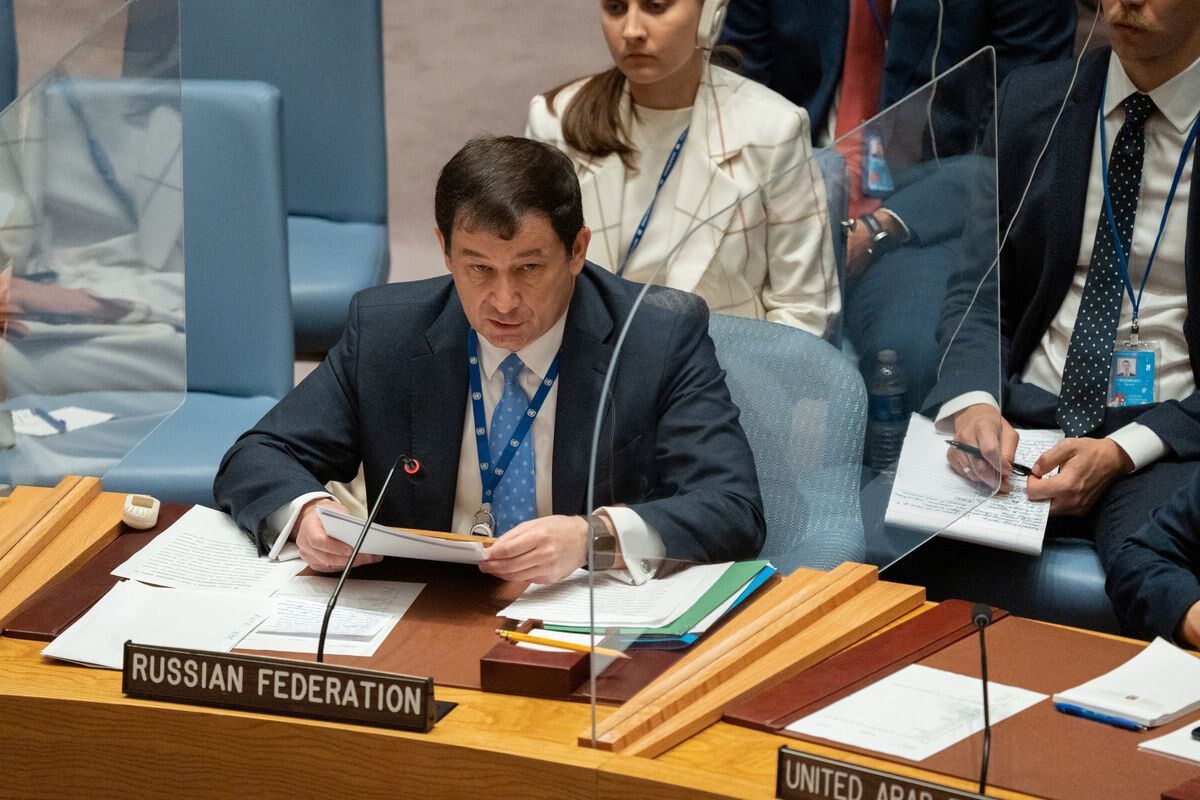Seyed Reza Sadr al-Hosseini, in an interview with the website of the Strategic Council on Foreign Relations, referred to the remarks of the deputy permanent representative of Russia to the United Nations, who called the attacks of the Zionist regime against military targets in Syria as unprecedented and asked the Security Council to respond appropriately to those attacks and stated: Russia has emphasized that the UN ignorance of Syria’s requests regarding the violation of its airspace by the Zionist regime and even the repeated letters sent to the Secretary General remaining unanswered, is unacceptable.
He stated that Russia considered the attacks of the Zionist regime, which violated the Syrian airspace, as one of the factors disturbing stability in Syria, and this is the position that Iran has had from the beginning regarding the measures of the Zionist regime in the region, adding: Looking at the process of interactions between Russia and Syria and the Zionist regime, we see noticeable changes in such relations, the changes are especially prominent between the Russian government and the Zionist regime. In fact, the anti-people actions that took place through the attacks and military invasions of the Zionist regime against the Syrian nation was a turning point that clarified the differences between Russia and the Zionist regime despite all the deep economic connections.
The expert on West Asia affairs said: Russia has realized in its new regional interactions that it cannot under any circumstances open a special account on its relations with the Zionist regime and bring it to the level of strategic relations; because the actions of the Zionist regime are dependent on the interests of the West and especially the United States, and the crisis created regarding Ukraine clearly showed the hostile position of that regime against Russia.
Sadr al-Hosseini continued: Sending weapons by the Zionist regime to Ukraine further fueled this mistrust and tension and convinced Russia that the Zionist regime will not move in any way in line with Moscow’s interests. This gap showed itself more in the recent attacks of the Zionist regime on Syria, and it seems that with the widening of this gap, the differences between them will expand.
Recalling that before and after the start of the war in Ukraine, Russia had demanded an unconditional halt to the Zionist regime’s attacks on Syria, he added: The media and military analysts of the Zionist regime have also acknowledged this, Moscow’s insistence on presenting a draft resolution in the Security Council to condemn the attacks of the regime on Damascus airport, is because of the position of the Zionist regime towards Russia’s attack on Ukraine, and the Zionist regime cannot ignore Russia’s opposition to the Tel Aviv attacks deep in Syria; because Russia has a military presence in Syria and Moscow has influence on the international scene.
The analyst of West Asia affairs added: Analysts of the Zionist regime emphasized that Russia’s reaction to the attack on the Damascus airport proves that the Zionist regime’s attempt to create discord among Russia, Iran and the Syrian regime has failed.
At the same time, Sadr al-Hosseini recalled that the Syrian army used Russian S-300 missiles to counter Israeli airstrikes, and said: The differences between the Zionist regime and Russia were initially manifested in the field of military issues, and after some time also stood out in the political sphere and the United Nations and made it clear that Russia has completely separated the account of the Zionist regime after the events in Ukraine and is following a new approach towards the regime.
Saying that the gap between the Zionist regime and Russia is increasing and pointing to Russia’s efforts to strengthen the position of the central government in Syria, he noted: In this regard, we witnessed the tense meeting of the United Nations Security Council regarding the mechanism of providing aid to the Syrian people and the veto of the resolution that bypassed the central government from Russia. Moscow deplored the violation of Syria’s sovereignty under the pretext of providing aid to the people, and also believes that considering that Bashar al-Assad’s government is in power in Syria, cross-border aid to that country should be provided through the central government, and Syria has repeatedly announced its serious concerns about the mechanism of sending aid through the border crossing.
According to the expert on West Asia affairs, the Zionist regime is trying to take maximum advantage of the space created in international relations after the conflicts in Ukraine in the fields of confronting the Islamic world and the front lines of Resistance. In fact, according to the mental and working conflicts of the UN Security Council and its active members, the Zionist regime takes maximum advantage, because it knows that the atmosphere that governs the media, due to the events in Ukraine, follows most of the issues arising from it, and issues such as attacks on Syria will be considered in the next categories.
Sadr al-Hosseini continued: It seems that for the new Russia, due to the need to attract countries converging with it, the region of West Asia and especially Syria has become more important than in the past and has increased its sensitivity towards Syria in various fields; to the extent that it is considered as one of the international supporters of Syria and in this field aligned with Iran.










0 Comments